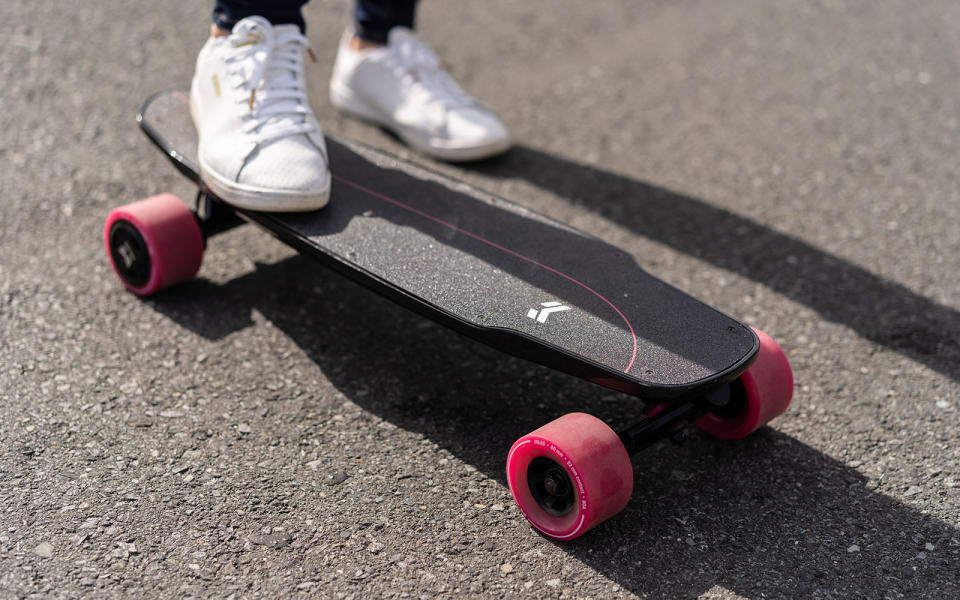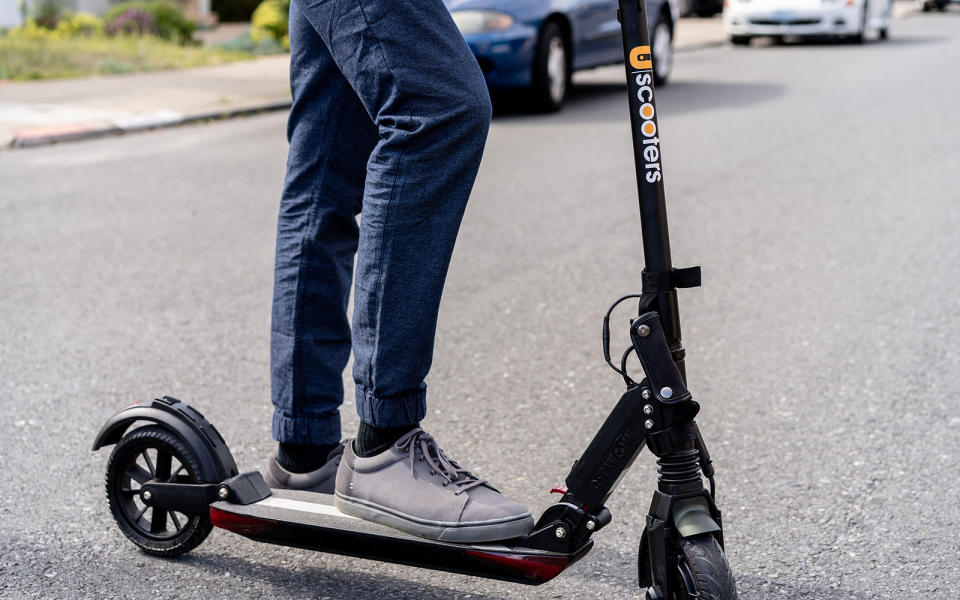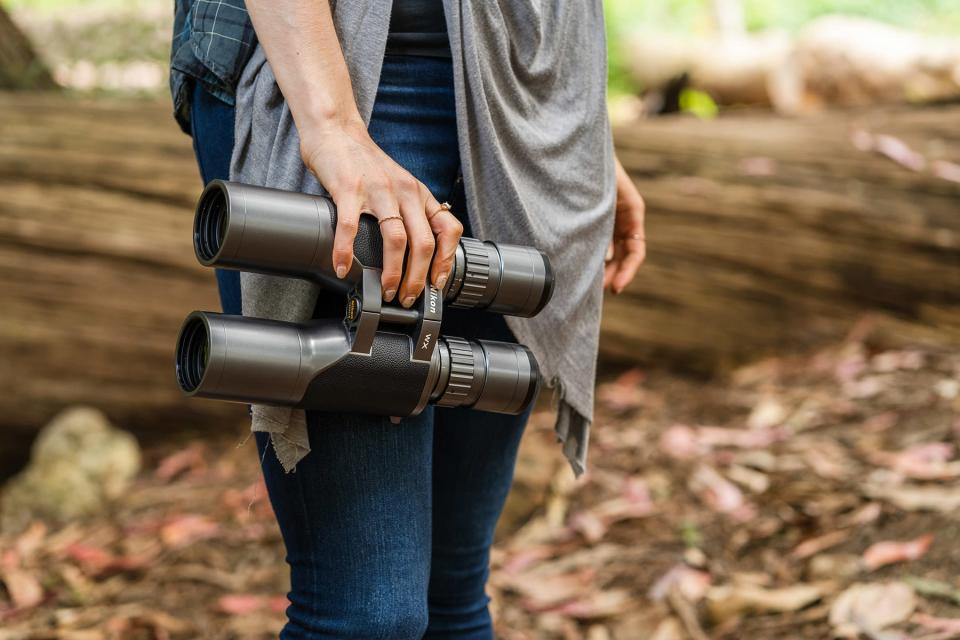Engadget has been testing and reviewing consumer tech since 2004. Our stories may include affiliate links; if you buy something through a link, we may earn a commission. Read more about how we evaluate products.
The best personal EVs for any commute
Walking is so 2018.
My commute isn't too bad. I have to walk a mile or so to the metro, ride it for about 25 minutes, and then it's a short walk from the station to the office. Driving would be exponentially more annoying (traffic) and costly (there's a $5 bridge fare each day, plus gas and parking). Carpooling is an option but less dependable, and besides, I like the solitude of public transit. (It's good reading time.) Remarkably, riding a bike to work is not an option for me, as the Bay Bridge is only rideable on the new Oakland side. All this to say: My commute is fine, but it's hardly fun.
The rise of personal EVs, then, offers a tantalizing proposition. The worst parts of my (and, I wager, your) commute are the walking sections. They're not exactly punishing, but at the end of the workday, I just want to get back home, and if it's hot or raining there's little escape from the elements.
The best electric bikes, scooters and skateboards to use at school
Beyond recouping precious minutes of personal time, there are other, wider-reaching benefits to upgrading your commute. For those who only have a few miles to cover, a personal EV could replace a car ride. The knock-on effect is less traffic, fewer accidents and a reduction on maintenance costs. Not to mention the air becomes cleaner and you might even save a few bucks. What's not to like about that?
Best of all, personal EVs are usually much more fun than walking or sitting in traffic. So, do your feet and wallet a favor and consider some of the following recommendations that should upgrade any commute, no matter the distance.
For the short hop: Miles Dual

If your journey to work or school is pretty walkable, Miles' electric skateboards are worth a look. Miles offers two models, the Single ($499) and the Dual ($769). Those names refer to the number of motors, and which one you want depends on your journey (and budget). As electric skateboards go, the Miles is pretty small, and at 12.5 lbs (for the heavier Dual), it's pretty light too.
Bringing the Miles on to public transit is easy as it'll fit under most seats or between your legs standing on its end. You could even buy a skate-friendly backpack and attach the Miles to it between rides. But, honestly, carrying it by hand won't feel like you're dragging around a motorized ball and chain (though that griptape can scuff your thumb, as I found out).
Despite its diminutive size, the Miles board goes toe-to-toe with most of its bigger rivals on speed and range. If you dare, the Dual can get up to (and maybe even beyond) 22 mph and last for 18 miles if you ride it cautiously. (The Single can reach 20 mph with a max range of 13 miles.) If you have some uphill sections, the Dual can tackle steeper gradients (about 20 percent), whereas the Single will struggle with anything over 15 percent.
I don't know if you've ever ridden an electric skateboard, but it's usually around 16 to 17 miles per hour when you become very aware that there's nothing between your flesh suit and the concrete whizzing by beneath it. All that to say, this thing is likely as fast as you'll want to go.
Beware, though, the deck is only 26.5 inches long, which is pretty tight for a board. This means it rides more like a "penny" board (with a motor attached!) than a cruiser. Taller folk, in particular, will need to adjust to the shorter foot placement and balance required. But the addition of a small kicktail means you can take tighter corners, ride over small obstacles and even up low curbs, which is something that will stump a lot of longboards.
Add in the fact that you can swap batteries out, choose a number of different griptape designs and, let's be real, dazzle folks with those delightfully hot-pink wheels, and you've got the ultimate short-ride or campus-cruising solution.
Buy Miles Dual on Amazon - $769
More than the last mile: Riptide R1X

If you need to go a little bit farther and want a more comfortable ride as you do so, then Riptide's R1X offers a good balance between comfort and portability.
At 32 inches, Riptide's board is mid-sized, about 5 inches longer than the Miles, and this makes all the difference. If you've ever ridden a regular skateboard or a cruiser, you'll be in familiar territory here. The R1X allows a much more comfortable stance that won't have your core or shins nagging you after a mile or so.
What I really like about this board isn't the 22mph top speed, or the 14-mile range (but those are both pretty decent), it's simply that it's just a lot of fun to ride. Carving (turn by leaning) feels natural, even at higher speeds, and the steeper kicktail makes it great for dropping off (and popping up) curbs — or even a crude ollie over a manhole (time to brush up on your popping skills).
With regular skateboards (think Tony Hawk), the front truck tends to naturally fall around hand-height when stood on end. Most electric skateboards are either smaller (Miles, Boosted Mini S) or bigger (any of the longboards). The R1X sits in the sweet spot, making it easier to handle while not riding it. The inclusion of a handle halfway down the board is a small, but smart addition, making it even easier for carrying between rides, or up stairs.
At $1,000 the R1X is not an impulse purchase, but it's comparable to rival boards (it's priced the same as Boosted's Mini X) and versatile enough to tackle mid-length commutes and short rides to pick up takeout (don't judge).
The all-day ride: Uscooters Booster V

In many large US cities, electric scooters are a common way to get around. And for good reason — they're easy to ride and safer on the road than a skateboard. Scooter rentals, in particular, have become both a boon and a burden for the cities that have them — they promise less traffic but often end up littering the streets (or lakes).
Rental scooters like Lime or Bird are great for those that only need them occasionally, but unless you're near a transit hub, they're often hard to find. It's frustrating to go out of your way to find one you see on the map, only for there to be nothing there. Buying one is the only way to guarantee you'll have access to it every day, and they're perfect for longer commutes, even if there's a dollop of public transit in the middle.
There are many models to choose from, with Xiaomi and Segway being two popular choices. But the Booster series from Uscooter is worth a look, for a few reasons.
Uscooter (made by ETWow, technically) offers a few models. The 350W/16 mph Eco ($599) offers a similar ride to most rentals, but you can fold it down and bring it on public transit too. If you have a little more budget, though, the Booser V ($1,199) is our recommendation as it offers a good balance of range (up to 24 miles), speed (25mph) and portability. (It weighs 23 pounds, which is on the lighter side.)
With the Five, you'll also get a little more power. The 500W motor tackles steeper inclines than most cheaper models (which tend to offer 200-300W motors), and regenerative braking means you can claim a little power back on the downhill (though the Eco offers this too).
I've been using Lime rental scooters for a while and it costs me about $2 each way every day. Going by that crude metric, the Booster V would pay for itself in about a year of daily use ($4 a day for 300 days). The Eco would recoup its investment in half that time. And that's not counting any extra rides I choose to take, and the convenience of having it on hand at all times.
Buy Boosted V on Amazon - $1,149
Beat the traffic: Boosted Rev

Boosted made its name in the electric skateboard world, but the company is now taking on the scooter scene. When the company announced it was working on a two-wheeler, some wondered how it would be different from the many already out there. The short answer is power.
The flagship feature of the Rev is the 1500-watt motor, which is about three times more powerful than most of its smaller rivals. All that power is housed inside a scooter that feels more like a mini-motorbike than an electrified push-along. Everything from the fat tires to the large footplate and knurled accelerator makes the Rev feel robust — there's a reason why the company calls it "vehicle grade."
At first glance, the key specs might leave you wondering where that power's going. With a 24 mph top speed and a range of 22 miles, it doesn't seem to blow away the competition. All those extra watts are more about how you reach that top speed or where you choose to spend those miles. In short, this thing flies and will tackle all sorts of terrain that would leave other scooters wheezing along, if they could manage it at all.
It's worth remembering that Boosted is based in San Francisco, and those famous hills are clearly the inspiration behind the Rev.
Your garden-variety 500-watt ride might take you up that incline, but it'll be clear the scooter is struggling until you hit flat road again. The Rev, on the other hand, pulls away from a standing hill start like a greyhound out of the trap. I rode the Rev in a park, and it took on gravel trails and grassy mounds with similar ease (though I am not sure Boosted recommends off-roading).
The tradeoff is that, at 46 pounds, the Rev is heavy. You won't want to be lugging this up too many stairs. You can haul it around, and it does fold down easily, but it needs more space on public transit, so plan your journey accordingly.
Most scooters are aimed at the last mile, but Boosted's Rev wants all the miles. While it won't ever replace a car, it can certainly replace many of the journeys you make in one. Think of it more like a mini-moped that feels more robust on the road. While smaller scooters can wobble when cars go past, with the Rev, it's likely you who's passing the cars.
The long-distance destroyer: Tern Vektron D8

Scooters and skateboards are great fun and perfect for casual commutes. But understandably, not everyone feels comfortable on a skateboard or riding a powered version of a Razer. If you want something that'll get you almost anywhere, in a more civilized fashion, you can't beat a bike. An electric one of course.
At over $2,200, the Vektron is a serious investment, but it's also a quality bike, and even push bikes can cost more than that. The Vektron D8 is particularly well suited to city riding. And of course, you can choose between riding under your own steam or taking it easy (especially up hills) by letting the 250-watt motor pick up some of the slack.
As with a regular bike, you have a choice of gears (eight in this case) to take on different terrainsand five levels of assistance to help you along. The gears are easily accessible on the right handlebar, while the assistance levels live in a small LCD display on the left.
For gentle rides, the lower assistance levels will give a modest boost, but you'll still feel like you're the one "riding."
Crank this thing up to level five though, and you'll suddenly feel like Superman. It's incredibly satisfying when the motor kicks in (almost immediately). You can really feel the bike pulling forward; even big hills start to feel like a Sunday saunter in the park.
On flat terrain, it's the two-wheeled equivalent of an airport moving walkway — pedestrians just fade away, and other cyclists will think you have thighs of steel as you glide past them without breaking a sweat. The electrical assist is good for about 25-50 miles, and even if you do run out of battery, you can keep on riding and it'll feel like a normal bike (the battery doesn't add too much weight).
Once you get where you're going, or if you can't avoid a stint on public transport, the Vektron D8 folds down to a manageable size. Simply roll it along behind you. I will say it's not nearly as convenient as most of the above alternatives, but it's definitely more convenient than wheeling a mountain bike onto a packed train. The handy rear rack, meanwhile, shores up the Vektron's commuter credentials, providing safe storage of your bag or groceries.


